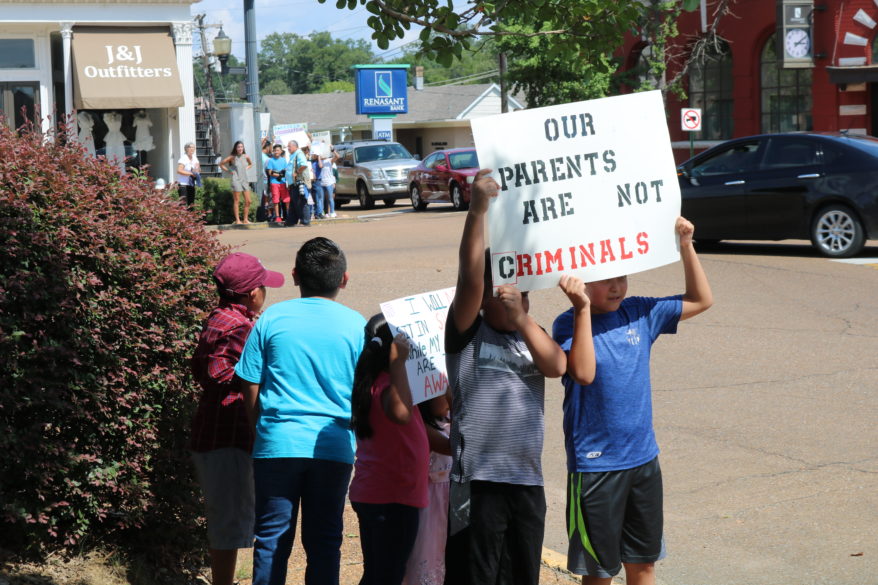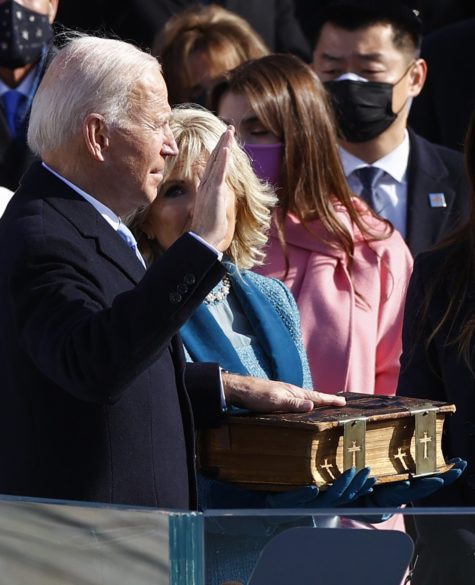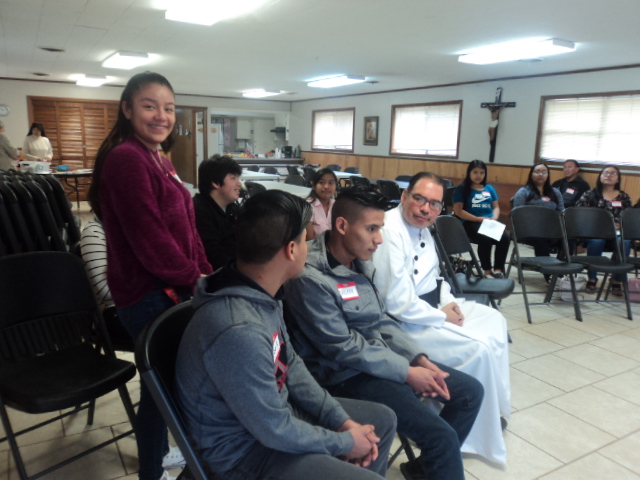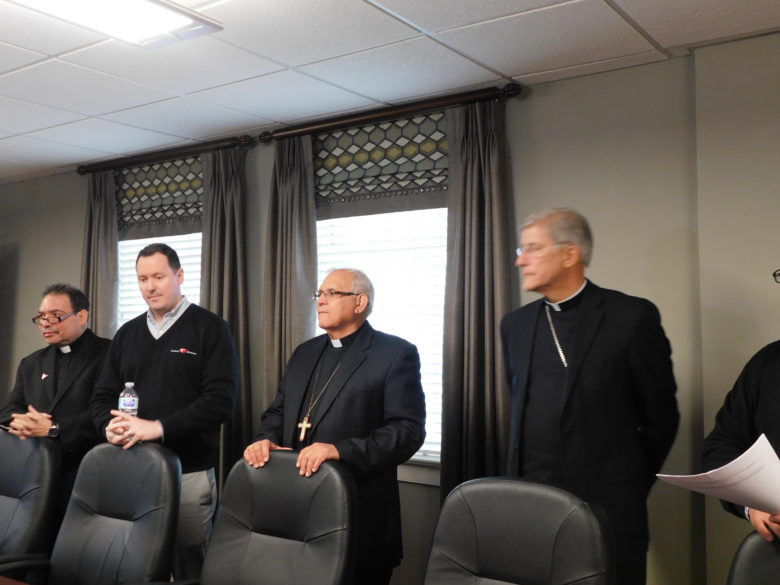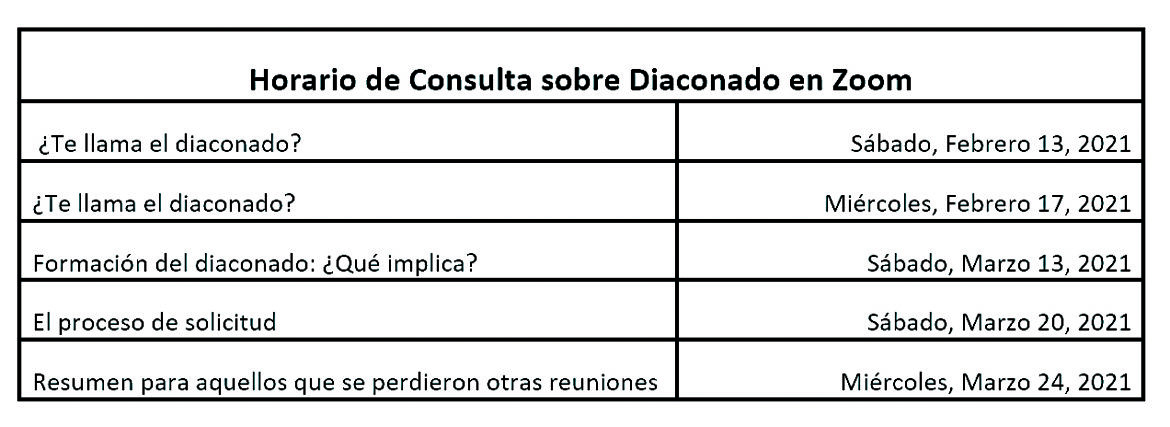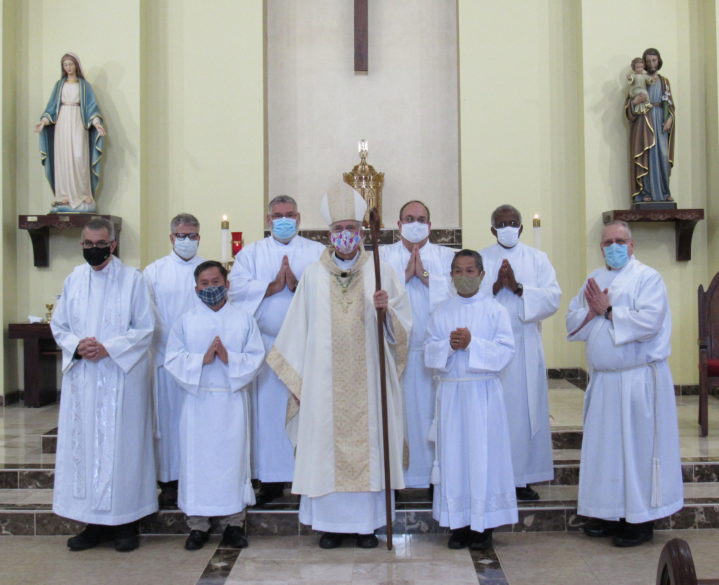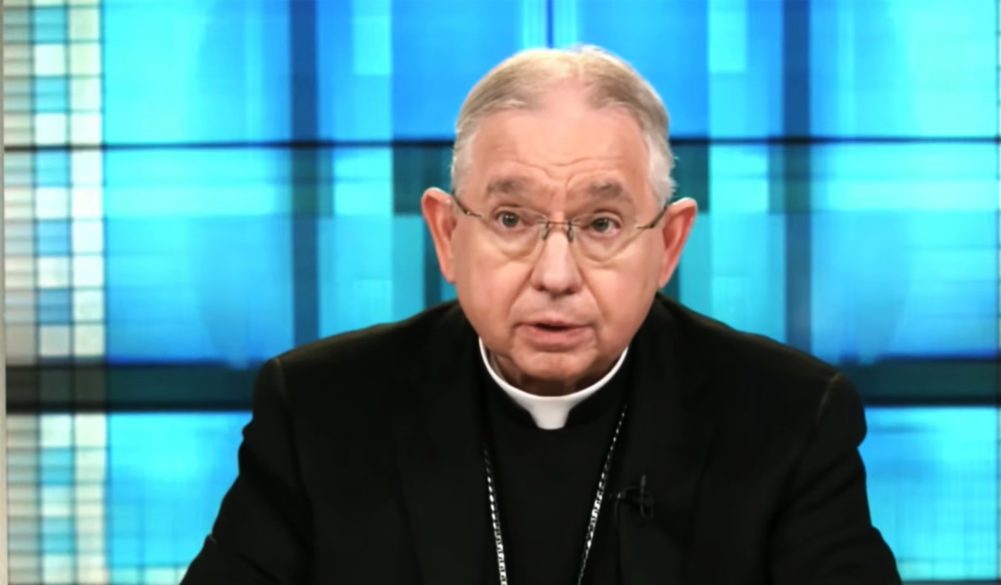From the Archives
By Mary Woodward
JACKSON – Recently, I participated in a DNA ancestry test using one of those kits involving sending one’s saliva to a lab. The results came back saying I am 100% European ancestry with the majority being Scottish. This was no surprise to me since my paternal grandfather’s cousins were all Cunninghams, McMillans and Carlisles. The rest of me is a mix of Irish, English, Welsh, German and Norwegian. That last one actually was a surprise.
I start with this to remind readers that I write from a white perspective and am attempting to offer a historical account from our diocesan archives on race and the growth of the Catholic community in our state. Again, the hope is to be honest and spawn some interesting dialogue based in this unique setting. I find myself at times struggling to find the right way to phrase things, so if something comes across as offensive, I apologize.
Last week we left off with the account of Madame Felicité Gireaudeau, the grand dame of Catholic Natchez in the early and mid-1800s being described as a free woman of color.
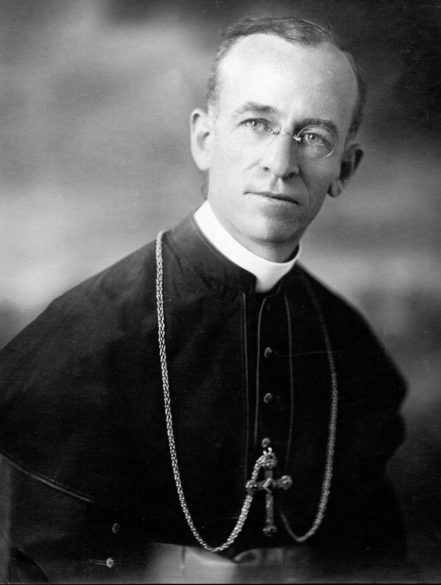
Bishop Gerow’s account from the eyewitness gives a beautiful rendering. His account even revealed she had freed her slaves, but they chose to remain with her. After further research by the St. Mary Basilica Archives crew, we now know Madame Gireaudeau’s own will tells another story. Upon her death, she bequeaths her “slaves” to a dear friend in Natchez.
At the end of the last article, I asked why the fact that she was a woman of color was left out of the description given by the eyewitness interviewed by Bishop Gerow. Initial responses could be that this was not known by the witness or perhaps it was not important to define her ethnicity – what was important was her catholicity. The Catholic community in Natchez which had had great prominence during Spanish rule now found itself under English Protestant influence and prejudice. Perhaps, the tight-knit Catholic community took solace in their Catholic identity and did not dwell on race.
A second response could be Bishop Gerow’s book was written in the late 1930s. The tenor of the time was much different in terms of race. The “one drop rule” was in full force and the witness was a product of her upbringing. As we know history is written subjectively.
According to Wiley’s Online Dictionary, “the one drop rule is a social rule of racial classification by which those with any degree of black ancestry are categorized as black. The rule is uniquely American and can be traced to the slave era as an effort by whites to maintain white supremacy. During the Jim Crow era, the rule was codified into state laws to formally define blackness in order to subjugate anyone with black ancestry.”
Let me interject a brief account of a complex, difficult history that many will remember from eighth-grade history class. In 1492, after a long journey at sea, Christopher Columbus spotted an island from his ship and named it La Isla Española (ultimately Hispanola). In order to mine the gold he sought for Spain, he and those that followed enslaved the local island population.
In a little over 100 years those indigenous peoples were wiped out due to imported European diseases, hard labor in the mines and/or abuse. The Spanish conquerors then began to bring slaves from neighboring islands who met the same fate.
With the mines exhausted, the Spanish turned the colony over to French colonists, who settled mainly on the Western end of the island and began to import slaves from Africa. By 1791 there were 500,000 slaves from Africa in Saint-Domingue, around 30,000 European colonists and around 25,000 “affranchis,” free persons of mixed race (Creole).

The slaves of Saint-Domingue revolted in 1791 and many colonists fled to places such as Baltimore and New Orleans, which was still a French colony. Bishop Chanche’s parents fled to Baltimore from Saint-Domingue during the revolt and he was born there in 1795.
It is possible that Felicité Pomet Gireaudeau’s families could have at one time been in Saint-Domingue. I have not researched her that far back. Some census records have her being born at sea. Her tombstone has her being born in New Orleans.
Felicité and her husband, Gabriel, also a person of color, were married in St. Louis Cathedral in New Orleans in 1817.
Emily Clark profiles Madame Gireaudeau in her contribution to Mississippi Women: Their Histories, Their Lives published in 2003. According to Clark, the sacramental register of their marriage tells it all. The original record was entered into the record for whites. The record has a notation below it reading: “this matrimonial act of Gabriel Girodeau with Felicité Pomet was recorded by error, improperly entered in this register since the said contractors are people of color.” Wow!
Therefore, many reactions are possible to the question why notation of color was left out of the story by the witness. Perhaps the witness did not want to reveal the heroism of a person of color; perhaps Bishop Gerow acted out of caution so as not to rock any boats; or perhaps neither one knew the Gireaudeau’s were in fact people of color.
In his book, Between the World and Me, TaNehisi Coates writes a letter to his son about being black in America. In it he talks of racism giving rise to race. He speaks of people who think they are white and explains that before they were white, they were Christian or European, but somehow that got lost in the struggle for power. This is the real ongoing struggle.
Therefore, perhaps we should look at this through that lens. Madame Gireaudeau lived in a time of cultural fluidity in early 19th century Catholic Natchez where for Catholics being Catholic was the point of importance. We really cannot offer a judgement against anyone involved in the telling of her story or of the Gireaudeau’s themselves. It is a story uniquely our own that holds us captive to our collective history.
(Mary Woodward is Chancellor and Archivist for the Diocese of Jackson.)

